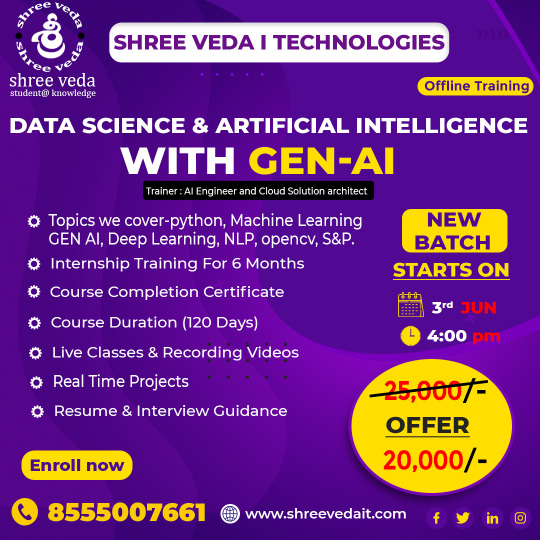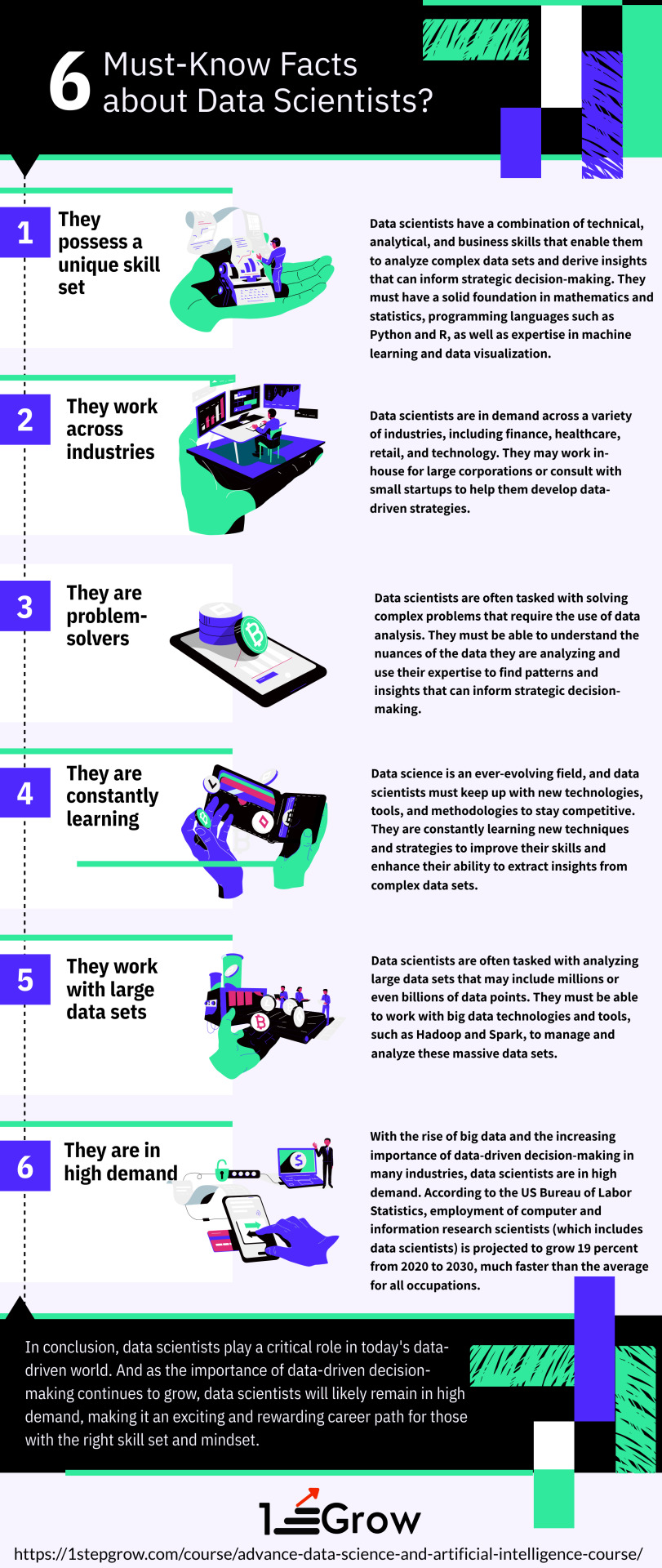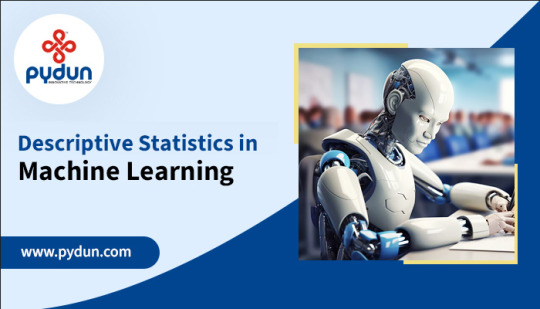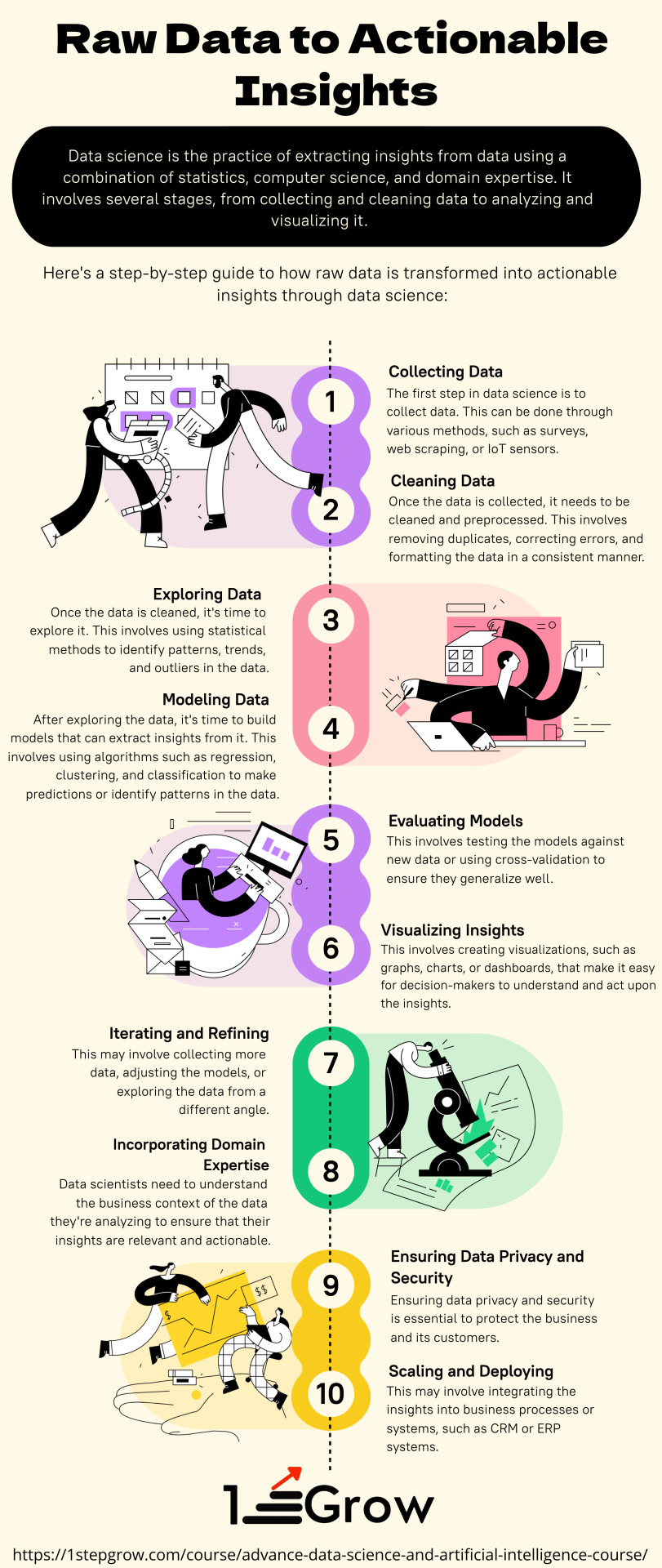#Data science and AI course
Explore tagged Tumblr posts
Text

Enroll in a comprehensive Data Science and AI course to gain expertise in machine learning, deep learning, data analysis, and more. Learn from top instructors with real-world projects and career support!
#data science and ai course#data science course india#data science course with placement#best institute for data analyst course#data science training institute#online data science course in india#best institute for data science course#artificial intelligence course in pune#data science course in mumbai#data science course in hyderabad
0 notes
Text
0 notes
Text
Data Science Courses with Placement Assistance That Deliver Results: Invest in Your Career and Earn Microsoft Certification with Digicrome

Let’s Start your Career with new techniques in Data Science. Digicrome provides a Data Science Course with Placement. It is designed by industry experts and our experts not only to prepare you with the knowledge and abilities you need but also to provide you with good placement assistance. Our team ensures your success in the job field.
Why Choose Digicrome’s Data Science Courses?
Comprehensive Curriculum: Our courses cover all essential features of Data Science, from basic concepts to advanced methods. You’ll gain expertise in machine learning, data analysis, etc.
Hands-On Experience: At Digicrome, we depend on practice. Our programs contain real-world projects and case studies, acknowledging you to apply theoretical knowledge in practical schemes.
Microsoft Certification: Enroll in our Online Data Science and AI Course with Microsoft Certification. This certificate is recognized globally and it is an extra benefit for your career growth.
Placement Assistance: We understand that a job is as important as acquiring skills. Our hard-working team works closely with you. To Build your resume, prepare for interviews and connect you with top industry employers.
Expert Instructors: Learn from industry experts who has experience in data science field. Their guidance will help you navigate the complexities of Data Science and maintain you updated with new trends and tools.
Career Support: We offer continuous career support to help you advance and succeed in your new part. we are here to support your career progress every step of the way.
Course Highlights
In-depth Coverage of Core Concepts: Build a reliable support in Data Science and AI.
Practical Training: Develop proficient abilities through experiential projects and case studies.
Industry-Oriented Curriculum: Learn about Online Data Science with AI Program.
Career Guidance: Receive mentorship and support to start your career in Data Science or AI.
The AI revolution is here, and its revolutionizing activities across the globe. Don't miss your chance anticipated any of this exciting journey. Enroll in Digicrome's Data Science and AI Course and prepare yourself with the abilities needed to grow in the AI-driven world.
For more information, feel free to reach out to us:
Company Name: - Digicrome Academy
Email: [email protected]
Phone: 0120 313 2160
Website: www.digicrome.com
#Data Science Course#Data Science Course Fees#data science course syllabus#online data science courses#best data science course#online data science and AI courses#online data science and AI course#Data Science and AI Online Courses#Data Science and AI Online Course#data science certification course#Data Science Course with Placement#Data Science and AI Course#data science course for beginners#data science courses for working professionals#data science course with internship#Online Data Science with AI program#best data science and ai course#online data science course with placement#data science course online
0 notes
Text
Best Data Science And Artificial Intelligence With Gen AI

#Best Data Science And Artificial Intelligence course in hyderabad#Best Artificial Intelligence traning institute#Best Data Science institute in hyderabad#Data science and AI course
1 note
·
View note
Text
6 Must-Know Facts about Data Scientists

This infographic highlights six important facts about data scientists that everyone should know. It describes the unique skill set of data scientists, the industries they work in, their problem-solving abilities, and their constant need to learn new techniques and tools. The infographic also notes that data scientists work with large data sets and are in high demand in today's data-driven world. Overall, this infographic provides a concise and informative overview of the key aspects of data science and why it is such an important field in today's economy. For more information, visit: 1stepGrow
#Data science#Data analysis#Analytics#Big data#Machine learning#Artificial intelligence#Problem-solving#Skills#Career#Technology#Industry#artificial intelligence and data science course#data science course#data science course bangalore#top data science course#data science course python#online data science course#data science and ai course
0 notes
Text
Your Guide to B.Tech in Computer Science & Engineering Colleges

In today's technology-driven world, pursuing a B.Tech in Computer Science and Engineering (CSE) has become a popular choice among students aspiring for a bright future. The demand for skilled professionals in areas like Artificial Intelligence, Machine Learning, Data Science, and Cloud Computing has made computer science engineering colleges crucial in shaping tomorrow's innovators. Saraswati College of Engineering (SCOE), a leader in engineering education, provides students with a perfect platform to build a successful career in this evolving field.
Whether you're passionate about coding, software development, or the latest advancements in AI, pursuing a B.Tech in Computer Science and Engineering at SCOE can open doors to endless opportunities.
Why Choose B.Tech in Computer Science and Engineering?
Choosing a B.Tech in Computer Science and Engineering isn't just about learning to code; it's about mastering problem-solving, logical thinking, and the ability to work with cutting-edge technologies. The course offers a robust foundation that combines theoretical knowledge with practical skills, enabling students to excel in the tech industry.
At SCOE, the computer science engineering courses are designed to meet industry standards and keep up with the rapidly evolving tech landscape. With its AICTE Approved, NAAC Accredited With Grade-"A+" credentials, the college provides quality education in a nurturing environment. SCOE's curriculum goes beyond textbooks, focusing on hands-on learning through projects, labs, workshops, and internships. This approach ensures that students graduate not only with a degree but with the skills needed to thrive in their careers.
The Role of Computer Science Engineering Colleges in Career Development
The role of computer science engineering colleges like SCOE is not limited to classroom teaching. These institutions play a crucial role in shaping students' futures by providing the necessary infrastructure, faculty expertise, and placement opportunities. SCOE, established in 2004, is recognized as one of the top engineering colleges in Navi Mumbai. It boasts a strong placement record, with companies like Goldman Sachs, Cisco, and Microsoft offering lucrative job opportunities to its graduates.
The computer science engineering courses at SCOE are structured to provide a blend of technical and soft skills. From the basics of computer programming to advanced topics like Artificial Intelligence and Data Science, students at SCOE are trained to be industry-ready. The faculty at SCOE comprises experienced professionals who not only impart theoretical knowledge but also mentor students for real-world challenges.
Highlights of the B.Tech in Computer Science and Engineering Program at SCOE
Comprehensive Curriculum: The B.Tech in Computer Science and Engineering program at SCOE covers all major areas, including programming languages, algorithms, data structures, computer networks, operating systems, AI, and Machine Learning. This ensures that students receive a well-rounded education, preparing them for various roles in the tech industry.
Industry-Relevant Learning: SCOE’s focus is on creating professionals who can immediately contribute to the tech industry. The college regularly collaborates with industry leaders to update its curriculum, ensuring students learn the latest technologies and trends in computer science engineering.
State-of-the-Art Infrastructure: SCOE is equipped with modern laboratories, computer centers, and research facilities, providing students with the tools they need to gain practical experience. The institution’s infrastructure fosters innovation, helping students work on cutting-edge projects and ideas during their B.Tech in Computer Science and Engineering.
Practical Exposure: One of the key benefits of studying at SCOE is the emphasis on practical learning. Students participate in hands-on projects, internships, and industry visits, giving them real-world exposure to how technology is applied in various sectors.
Placement Support: SCOE has a dedicated placement cell that works tirelessly to ensure students secure internships and job offers from top companies. The B.Tech in Computer Science and Engineering program boasts a strong placement record, with top tech companies visiting the campus every year. The highest on-campus placement offer for the academic year 2022-23 was an impressive 22 LPA from Goldman Sachs, reflecting the college’s commitment to student success.
Personal Growth: Beyond academics, SCOE encourages students to participate in extracurricular activities, coding competitions, and tech fests. These activities enhance their learning experience, promote teamwork, and help students build a well-rounded personality that is essential in today’s competitive job market.
What Makes SCOE Stand Out?
With so many computer science engineering colleges to choose from, why should you consider SCOE for your B.Tech in Computer Science and Engineering? Here are a few factors that make SCOE a top choice for students:
Experienced Faculty: SCOE prides itself on having a team of highly qualified and experienced faculty members. The faculty’s approach to teaching is both theoretical and practical, ensuring students are equipped to tackle real-world challenges.
Strong Industry Connections: The college maintains strong relationships with leading tech companies, ensuring that students have access to internship opportunities and campus recruitment drives. This gives SCOE graduates a competitive edge in the job market.
Holistic Development: SCOE believes in the holistic development of students. In addition to academic learning, the college offers opportunities for personal growth through various student clubs, sports activities, and cultural events.
Supportive Learning Environment: SCOE provides a nurturing environment where students can focus on their academic and personal growth. The campus is equipped with modern facilities, including spacious classrooms, labs, a library, and a recreation center.
Career Opportunities After B.Tech in Computer Science and Engineering from SCOE
Graduates with a B.Tech in Computer Science and Engineering from SCOE are well-prepared to take on various roles in the tech industry. Some of the most common career paths for CSE graduates include:
Software Engineer: Developing software applications, web development, and mobile app development are some of the key responsibilities of software engineers. This role requires strong programming skills and a deep understanding of software design.
Data Scientist: With the rise of big data, data scientists are in high demand. CSE graduates with knowledge of data science can work on data analysis, machine learning models, and predictive analytics.
AI Engineer: Artificial Intelligence is revolutionizing various industries, and AI engineers are at the forefront of this change. SCOE’s curriculum includes AI and Machine Learning, preparing students for roles in this cutting-edge field.
System Administrator: Maintaining and managing computer systems and networks is a crucial role in any organization. CSE graduates can work as system administrators, ensuring the smooth functioning of IT infrastructure.
Cybersecurity Specialist: With the growing threat of cyberattacks, cybersecurity specialists are essential in protecting an organization’s digital assets. CSE graduates can pursue careers in cybersecurity, safeguarding sensitive information from hackers.
Conclusion: Why B.Tech in Computer Science and Engineering at SCOE is the Right Choice
Choosing the right college is crucial for a successful career in B.Tech in Computer Science and Engineering. Saraswati College of Engineering (SCOE) stands out as one of the best computer science engineering colleges in Navi Mumbai. With its industry-aligned curriculum, state-of-the-art infrastructure, and excellent placement record, SCOE offers students the perfect environment to build a successful career in computer science.
Whether you're interested in AI, data science, software development, or any other field in computer science, SCOE provides the knowledge, skills, and opportunities you need to succeed. With a strong focus on hands-on learning and personal growth, SCOE ensures that students graduate not only as engineers but as professionals ready to take on the challenges of the tech world.
If you're ready to embark on an exciting journey in the world of technology, consider pursuing your B.Tech in Computer Science and Engineering at SCOE—a college where your future takes shape.
#In today's technology-driven world#pursuing a B.Tech in Computer Science and Engineering (CSE) has become a popular choice among students aspiring for a bright future. The de#Machine Learning#Data Science#and Cloud Computing has made computer science engineering colleges crucial in shaping tomorrow's innovators. Saraswati College of Engineeri#a leader in engineering education#provides students with a perfect platform to build a successful career in this evolving field.#Whether you're passionate about coding#software development#or the latest advancements in AI#pursuing a B.Tech in Computer Science and Engineering at SCOE can open doors to endless opportunities.#Why Choose B.Tech in Computer Science and Engineering?#Choosing a B.Tech in Computer Science and Engineering isn't just about learning to code; it's about mastering problem-solving#logical thinking#and the ability to work with cutting-edge technologies. The course offers a robust foundation that combines theoretical knowledge with prac#enabling students to excel in the tech industry.#At SCOE#the computer science engineering courses are designed to meet industry standards and keep up with the rapidly evolving tech landscape. With#NAAC Accredited With Grade-“A+” credentials#the college provides quality education in a nurturing environment. SCOE's curriculum goes beyond textbooks#focusing on hands-on learning through projects#labs#workshops#and internships. This approach ensures that students graduate not only with a degree but with the skills needed to thrive in their careers.#The Role of Computer Science Engineering Colleges in Career Development#The role of computer science engineering colleges like SCOE is not limited to classroom teaching. These institutions play a crucial role in#faculty expertise#and placement opportunities. SCOE#established in 2004#is recognized as one of the top engineering colleges in Navi Mumbai. It boasts a strong placement record
2 notes
·
View notes
Text
What are some challenging concepts for beginners learning data science, such as statistics and machine learning?
Hi,
For beginners in data science, several concepts can be challenging due to their complexity and depth.
Here are some of the most common challenging concepts in statistics and machine learning:

Statistics:
Probability Distributions: Understanding different probability distributions (e.g., normal, binomial, Poisson) and their properties can be difficult. Knowing when and how to apply each distribution requires a deep understanding of their characteristics and applications.
Hypothesis Testing: Hypothesis testing involves formulating null and alternative hypotheses, selecting appropriate tests (e.g., t-tests, chi-square tests), and interpreting p-values. The concepts of statistical significance and Type I/Type II errors can be complex and require careful consideration.
Confidence Intervals: Calculating and interpreting confidence intervals for estimates involves understanding the trade-offs between precision and reliability. Beginners often struggle with the concept of confidence intervals and their implications for statistical inference.
Regression Analysis: Multiple regression analysis, including understanding coefficients, multicollinearity, and model assumptions, can be challenging. Interpreting regression results and diagnosing issues such as heteroscedasticity and autocorrelation require a solid grasp of statistical principles.
Machine Learning:
Bias-Variance Tradeoff: Balancing bias and variance to achieve a model that generalizes well to new data can be challenging. Understanding overfitting and underfitting, and how to use techniques like cross-validation to address these issues, requires careful analysis.
Feature Selection and Engineering: Selecting the most relevant features and engineering new ones can significantly impact model performance. Beginners often find it challenging to determine which features are important and how to transform raw data into useful features.
Algorithm Selection and Tuning: Choosing the appropriate machine learning algorithm for a given problem and tuning its hyperparameters can be complex. Each algorithm has its own strengths, limitations, and parameters that need to be optimized.
Model Evaluation Metrics: Understanding and selecting the right evaluation metrics (e.g., accuracy, precision, recall, F1 score) for different types of models and problems can be challenging.
Advanced Topics:
Deep Learning: Concepts such as neural networks, activation functions, backpropagation, and hyperparameter tuning in deep learning can be intricate. Understanding how deep learning models work and how to optimize them requires a solid foundation in both theoretical and practical aspects.
Dimensionality Reduction: Techniques like Principal Component Analysis (PCA) and t-Distributed Stochastic Neighbor Embedding (t-SNE) for reducing the number of features while retaining essential information can be difficult to grasp and apply effectively.
To overcome these challenges, beginners should focus on building a strong foundation in fundamental concepts through practical exercises, online courses, and hands-on projects. Seeking clarification from mentors or peers and engaging in data science communities can also provide valuable support and insights.
#bootcamp#data science course#datascience#data analytics#machinelearning#big data#ai#data privacy#python
3 notes
·
View notes
Text
Taking Flight with Data Science: Revolutionizing the Aerospace Industry

The aerospace industry, a complex and data-rich domain, is undergoing a transformation fueled by the power of data science. From aircraft design and manufacturing to flight operations and air traffic management, data science is playing a crucial role in enhancing efficiency, safety, and innovation. This blog explores the exciting applications of data science in aerospace and how it's shaping the future of flight.
Data: The Fuel of Aerospace Innovation
Aerospace generates vast amounts of data, including sensor readings from aircraft, weather patterns, air traffic information, and maintenance records. This data, when analyzed effectively, holds valuable insights that can revolutionize various aspects of the industry.
Key Applications of Data Science in Aerospace:
Aircraft Design and Optimization: Data science enables engineers to analyze aircraft performance data, simulate different designs, and optimize fuel efficiency, aerodynamics, and structural integrity. Machine learning algorithms can predict the behavior of new materials and designs, leading to more efficient and sustainable aircraft.
Predictive Maintenance: Analyzing sensor data from aircraft engines and other components allows for predictive maintenance, anticipating potential failures before they occur. This reduces downtime, minimizes maintenance costs, and improves aircraft reliability.
Flight Operations Optimization: Data science can optimize flight routes, fuel consumption, and crew scheduling by analyzing weather patterns, air traffic conditions, and historical flight data. This leads to more efficient flight operations, reduced delays, and cost savings.
Air Traffic Management: Analyzing air traffic data can help predict congestion, optimize flight paths, and improve air traffic flow. This enhances air traffic management efficiency, reduces delays, and increases airspace capacity.
Safety Enhancement: Data science plays a critical role in enhancing aviation safety. By analyzing accident data, identifying patterns, and predicting potential risks, it's possible to develop proactive safety measures and prevent future incidents.
Customer Experience Improvement: Data science can personalize the passenger experience by analyzing customer preferences, providing tailored recommendations, and optimizing in-flight entertainment and services.
Manufacturing Process Optimization: Analyzing manufacturing data can help improve production efficiency, reduce defects, and optimize resource allocation in aerospace manufacturing facilities.
Supply Chain Management: Data science can optimize supply chain operations by predicting demand, managing inventory levels, and streamlining logistics. This ensures that the necessary parts and materials are available when and where they are needed.
Space Exploration: Data science is crucial for analyzing data from space missions, processing images from telescopes, and developing autonomous navigation systems for spacecraft.
Drone Technology: Data science is enabling the development of advanced drone technologies for various applications in aerospace, including aerial surveillance, infrastructure inspection, and package delivery.
Benefits of Data Science in Aerospace:
Increased Efficiency: Optimizing flight operations, manufacturing processes, and resource allocation leads to significant efficiency gains.
Cost Reduction: Predictive maintenance, optimized fuel consumption, and streamlined operations contribute to substantial cost savings.
Enhanced Safety: Data-driven insights enable proactive safety measures, reducing the risk of accidents and improving overall aviation safety.
Innovation and Development: Data science accelerates the development of new technologies and aircraft designs, fostering innovation in the aerospace industry.
Improved Customer Experience: Personalization and optimization of services lead to enhanced customer satisfaction.
Xaltius Academy's Data Science Course: Your Gateway to Aerospace Analytics
The aerospace industry is increasingly reliant on data science professionals with the skills to analyze complex data and extract valuable insights. Xaltius Academy's data science course provides you with the foundational knowledge and advanced techniques needed to thrive in this exciting field. Our curriculum covers the essential concepts and tools, preparing you to tackle the unique challenges and opportunities presented by the aerospace industry. Invest in your future and become a leader in the data-driven world of aerospace.
Conclusion:
Data science is revolutionizing the aerospace industry, driving innovation, enhancing safety, and improving efficiency across various domains. As the volume of data continues to grow, the importance of data science in aerospace will only increase, creating exciting career opportunities for skilled professionals who can unlock the power of data to shape the future of flight.
0 notes
Text
#data science#data analytics#artificial intelligence#data science course#ai technology#machine learning#data scientist#datascience
0 notes
Text
Piyush Kumar and Kuldeep Singh | Inspiring Entrepreneurs of India 2024

Digital CourseAI, Founded by Piyush Kumar and Kuldeep Singh, is truly more than a business venture — it is a movement to democratize education in digital marketing, data science, UI/UX, and beyond. Their mission is both bold and simple: to make high-quality learning accessible to everyone, regardless of financial standing. Kuldeep Singh, a technophile who is a B.Tech degree holder from IP University in Delhi, found himself enthralled by the limitless potential of digital transformation. However, he was always concerned about the humongous fees of quality courses, especially in the field of digital marketing. Piyush Kumar, an already established digital marketer with an 8-year experience in the industry. Witnessed and acknowledged the same problem. Their paths crossed serendipitously at an educational institution, and what began as a casual conversation swiftly transformed into a partnership founded on shared values and a profound vision. The two recognized a pivotal gap in the market: while the demand for digital skills was exploding, the resources to acquire them remained limited and often inaccessible. “Education is the great equalizer,” Piyush says.

“But only when it’s within reach of everyone.”From the outset, Digital CourseAI acknowledged a dual ethos of innovation and inclusivity. Kuldeep’s technical expertise allowed the pair to construct a seamless, intuitive platform capable of delivering engaging, interactive content. Meanwhile, Piyush brought his extensive industry knowledge to curate courses that resonated with real-world demands. Together, they crafted an ecosystem where affordability did not compromise quality, ensuring that learners could acquire top-tier skills at a fraction of the usual cost. The journey to build Digital CourseAI was far from smooth as they were trying to solve and accomplish a real-world significant problem. Operating as a bootstrapped startup, financial constraints loomed large, compounded by the challenges of gaining market traction in a highly competitive space. Lacking robust familial or societal support, Both leaned on their resilience, self-belief, and resourcefulness.

To overcome these hurdles, they adopted a lean operational model, that focused on impactful initiatives and leveraging technology to optimize resources. “Entrepreneurship tests every fiber of your being,” Kuldeep says. “But it also reveals the depth of your determination and the clarity of your vision.” Their relentless perseverance soon bore fruit. Positive testimonials from early adopters began to pour in, serving as powerful validation of their efforts. Students reported life-changing outcomes — new jobs, career advancements, and entrepreneurial successes. It was a moment of vindication, not merely for the co-founders but for the broader vision they championed. At the core of their success lies its relentless commitment to innovation. The platform offers AI-powered personalized learning paths, gamified modules, and practical projects that simulate real-world challenges. These features make the learning experience engaging and deeply relevant, bridging the gap between theory and application. Recent expansions into corporate training and specialized certifications denotes and demonstrate the platform’s adaptability and foresight, ensuring its offerings remain at the forefront of industry needs. Yet, both, Piyush and Kuldeep are keenly aware that true success transcends profit margins. With initiatives such as scholarships for underprivileged students and partnerships with non-governmental organizations, they are implanting social impact into their business model. “True greatness lies in empowering others to achieve their dreams,” Piyush says. This success, however big, is far from their ultimate capability. The co-founders plan a global presence, with a growing suite of courses tailored to the needs of emerging economies and developed markets alike. Plans for integrating cutting-edge technologies like AR and VR into their curriculum reflect their commitment to staying ahead of the curve. “The path to success is seldom linear, But those who persist, adapt, and stay true to their purpose inevitably leave a mark that time cannot erase.” says Kuldeep.
0 notes
Text
youtube
AI and ML Courses in Chennai
Transform Data into Knowledge with the Best Data Science Courses in Chennai. Unlock the Future of Technology with AI and ML Courses in Chennai at BIA!
Website: https://bostoninstituteofanalytics.org/india/chennai/anna-nagar/school-of-technology-ai/data-science-and-artificial-intelligence/
#AI and ML Courses in Chennai#Best Data Science Courses in Chennai#Artificial Intelligence Course in Chennai#Youtube
0 notes
Text
youtube
AI Fundamentals Explained! Machine Learning Full Course | Stanford Online (CS229)- Andrew Ng (Pt 1)
Andrew Ng’s renowned Machine Learning University Course continues to gain significance as the profound impact of machine learning becomes increasingly evident in modern applications. What sets this course apart is Ng’s ability to break down complex concepts with clarity and precision, enabling learners to grasp fundamental ideas intuitively. His structured and insightful teaching approach makes advanced topics accessible, ensuring both depth and clarity in learning. Recognizing the course’s enduring value, we have made this material available to provide broader access to this exceptional educational resource. We extend our sincere gratitude to Andrew Ng and the Stanford School of Engineering for their remarkable contribution to the field. This marks the first installment of a distinguished three-part series, meticulously curated to offer a rigorous and structured learning experience. We invite you to support Andrew Ng and the Stanford School of Engineering by exploring the links below.
#free education#education#educate yourselves#technology#educate yourself#Machine Learning Full Course#ai machine learning#ai technology#machine learning#intelligence artificielle#data analytics#machine learning solutions#ai resources#computer science#Andrew Ng#Machine Learning University Course#education for all#youtube#Youtube
1 note
·
View note
Text
Descriptive Statistics: The Starting Point for Machine Learning - Mean, Median & Mode
Introduction
Did you know that the simple concepts of mean, median, and mode that most students learn in high school or college are part of something much bigger called descriptive statistics? These are not just formulas to memorize for exams, but powerful tools that help us make sense of the world, especially in the realm of machine learning.

If you’ve ever used a weather app, checked the average price of a product, or wondered how your exam scores compare to others, you’ve already encountered descriptive statistics in action. These concepts are the foundation of data analysis, helping us summarize large amounts of information into digestible insights. Whether you're an academic, a data scientist, or just someone working with numbers, understanding these can be incredibly beneficial.
In this blog, we’ll explore mean, median, and mode in simple, relatable terms. You’ll learn why they matter, how they’re used, and how they can even reveal surprising patterns in data. By the end, you’ll see these tools as more than just numbers—they’re a way to understand and tell stories with data.
What Are Descriptive Statistics?
Descriptive statistics are like a summary of a book. Imagine you have a giant dataset filled with numbers. Instead of analyzing every single number individually, descriptive statistics let you condense all that information into a few key takeaways.
Think of descriptive statistics as the answers to these questions:
What is the typical value in the data?
How spread out are the numbers?
Are there any unusual numbers (outliers) in the dataset?
These tools don’t just organize data; they help us make decisions. For example, a sports coach might use descriptive statistics to figure out an average player’s performance, or a teacher might use it to understand how a class performed on a test.
Key Terms
Mean (Average): Represents the typical value of your dataset.
Median (Middle Value): The middle number in a sorted dataset.
Mode (Most Frequent Value): The value that appears most often.
These concepts sound simple, but their real-world applications are profound. Let’s dive deeper into each one.
Mean: The Average Value
The mean is the first thing people think of when summarizing data. It’s the average—a single number that represents the entire dataset.
How to Calculate the Mean
To find the mean:
Add up all the numbers in the dataset.
Divide by the total number of values.
Real-World Example
Imagine your test scores over five exams are: 80, 85, 90, 75, and 95. To calculate the mean:
Add: 80 + 85 + 90 + 75 + 95 = 425
Divide: 425 ÷ 5 = 85
The mean score is 85. This tells you that, on average, you scored 85 on your tests.
Why the Mean Is Useful
The mean helps you understand the “typical” value of a dataset. If you’re a teacher, the mean class score can tell you how well students performed overall. If you’re a business owner, the mean monthly sales can help you track growth.
Limitations of the Mean
The mean can be misleading when there are outliers. Outliers are values that are much higher or lower than the rest of the data.
Example of Outliers: Imagine your test scores are: 80, 85, 90, 75, and 300. The mean becomes:
Add: 80 + 85 + 90 + 75 + 300 = 630
Divide: 630 ÷ 5 = 126
Does 126 represent your performance? Not really! That one outlier (300) skews the mean, making it higher than most of your scores.
Median: The Middle Value
The median is the middle number in a dataset when it’s sorted in order. Unlike the mean, the median isn’t affected by outliers, making it a more accurate representation of data in certain cases.
How to Calculate the Median
Arrange the data in ascending order.
Find the middle value.
If there’s an odd number of values, the median is the middle one.
If there’s an even number of values, the median is the average of the two middle numbers.
Real-World Example
Your daily spending over a week: 30, 40, 45, 50, 100.
Arrange: 30, 40, 45, 50, 100
Median = 45 (middle value)
If an outlier changes your spending to 30, 40, 45, 50, 1000, the median stays at 45. This stability makes the median useful when dealing with skewed data.
Why the Median Is Useful
The median is great for datasets with extreme values or skewed distributions, such as house prices. For example, if most houses in a neighbourhood cost $200,000 but one mansion costs $10 million, the median price gives a clearer picture of the typical home instead of the anomalies. If a family is planning to buy a house and they look at the mean, and it is very high they probably would not want to buy the house that’s where median comes into play. Median gives a clearer picture of the normal prices instead of the outliers.
Mode: The Most Frequent Value
The mode is the value that appears most often in a dataset. It’s especially useful for categorical data or finding trends.
How to Find the Mode
Count how many times each value appears.
The value with the highest count is the mode.
Real-World Example
Survey responses about favourite ice cream flavours: Vanilla, Chocolate, Chocolate, Strawberry, Vanilla, Chocolate.
Vanilla - 2
Strawberry - 1
Chocolate - 3
Mode = Chocolate (appears 3 times).
Why the Mode Is Useful
The mode helps identify popularity or commonality. For instance, in marketing, knowing the most purchased product can guide inventory decisions, like which product do we stock up on.
Summary Each Concept
Mean: Calculate by adding all numbers and dividing by the count. Useful for getting the "average" but can be skewed by outliers.
Median: Found by arranging data and picking the middle value. Excellent for skewed data because it's not influenced by outliers.
Mode: Identified by finding the most frequent data point. Great for understanding commonality or popularity in categorical data.
Conclusion
Descriptive statistics aren’t just numbers; they’re tools that help us make sense of data and the world around us. By understanding mean, median, mode, variance, and standard deviation, you can:
Summarize data quickly.
Identify patterns and outliers.
Prepare data for deeper analysis in machine learning.
So, the next time you see a dataset, don’t just glance over it—ask yourself: What story is this data telling? With descriptive statistics, you have the power to find out.
Insights with Descriptive Statistics
Through mean, median, and mode, descriptive statistics allow us to quickly summarize data, identify patterns, and prepare for more complex analyses. These concepts aren't just tools for calculation; they offer us ways to view and interpret the vast amounts of data that inform decisions in fields ranging from education to economics.
You might be wondering why I've mentioned Variance and Standard Deviation towards the end. This is because these concepts are fundamental in descriptive statistics and are vital for machine learning and data analysis. Variance and Standard Deviation provide us with insights into the spread and variability of data, aspects that mean, median, and mode cannot capture alone.
If you feel you're falling behind in any of these areas or have a keen interest in learning machine learning, now is the time to act. Pydun Technology’s specialized training programs are designed to equip you with the skills and confidence to overcome obstacles and master complex concepts.
At Pydun, we believe the journey isn’t just about hard work—it’s about simplifying complexity, understanding the core principles, and connecting these concepts to real-world applications.
Are you ready to transform your academic and professional journey? Contact us today at [email protected] or drop us a message at +91 93619 99189 and take the first step toward becoming the learner you were destined to be.
Stay tuned for the next blog where we will delve deeper into how Variance and Standard Deviation play a crucial role in understanding data spread and variability. This knowledge not only enhances our ability to summarize data but also helps in predicting and controlling future outcomes in complex data environments.
#Machine Learning#Machine Learning with AI#AI courese#Artificial Intelligence and Machine Learning Courses#Artificial Intelligence Courses#Machine Learning Courses#AI Courses in Madurai#AI and ML Training in Madurai#AI Programming in Madurai#Machine Learning Training in Madurai#Data Science and Analytics with AI#Data Science and Analytics with AI Courses
1 note
·
View note
Text
How to Become a Data Scientist from Scratch: A Step-by-Step Guide

Data science has become one of the most sought-after careers, offering lucrative salaries and exciting opportunities. But what if you have no prior experience in the field? Can you still become a data scientist? The good news is yes! With the right plan, dedication, and a structured approach, you can break into data science from scratch.
This guide will walk you through the key steps to becoming a data scientist, the essential skills you need, and the best resources to accelerate your journey. Additionally, we’ll introduce you to the Boston Institute of Analytics, The Best online data science institute in Canada, which can help you gain practical expertise and industry-ready skills.
Step 1: Understand What Data Science Entails
Before diving into learning, it's crucial to grasp what data science is all about. At its core, data science is about extracting meaningful insights from data using techniques from programming, statistics, and machine learning.
Core Responsibilities of a Data Scientist:
Collecting, cleaning, and processing data
Performing exploratory data analysis (EDA)
Applying statistical methods for predictions
Developing and optimizing machine learning models
Visualizing data to communicate findings effectively
Translating data insights into business decisions
Understanding these responsibilities will help you build a focused learning strategy.
Step 2: Master the Key Data Science Skills
To thrive as a data scientist, you need to develop both technical and analytical skills. Here are the essential ones:
1. Learn a Programming Language
Python and R are the most popular languages for data science, with Python being the preferred choice due to its simplicity and versatility. Essential Python libraries include:
Pandas – Data manipulation and analysis
NumPy – Numerical computations
Matplotlib & Seaborn – Data visualization
Scikit-learn – Machine learning
2. Build Your Statistical and Mathematical Foundation
Data science relies heavily on statistics and mathematics. Some fundamental concepts include:
Probability distributions
Regression analysis
Hypothesis testing
Linear algebra and calculus
3. Gain Knowledge of Machine Learning
Machine learning is a major part of data science. Start with:
Supervised and unsupervised learning
Decision trees, random forests, and boosting techniques
Deep learning fundamentals
4. Learn Data Wrangling & SQL
Handling messy data is a daily task for data scientists. SQL and Python’s Pandas library will help you manipulate and query datasets efficiently.
5. Master Data Visualization
Data scientists must present insights clearly. Learn tools like:
Matplotlib and Seaborn (Python)
Tableau and Power BI (Dashboarding tools)
6. Develop Business Acumen & Communication Skills
Knowing how to translate data insights into actionable business strategies and effectively communicating findings is just as important as technical expertise.
Step 3: Enroll in a Structured Data Science Program
While self-study is possible, enrolling in a structured course provides hands-on training and mentorship.
Boston Institute of Analytics: Best Online Data Science Institute in Canada
For those looking for an industry-aligned, hands-on learning experience, Boston Institute of Analytics (BIA) offers one of the best online data science courses in Canada. Their program provides:
In-depth training in Python, machine learning, and AI
Hands-on projects based on real-world case studies
Expert-led mentorship from industry professionals
Globally recognized certification
Career guidance and job placement assistance
If you're serious about transitioning into data science, BIA is an excellent choice to fast-track your learning.
Step 4: Work on Real-World Projects and Build a Portfolio
To land a job in data science, you need hands-on experience. Build a portfolio by:
Analyzing publicly available datasets (Kaggle, UCI Machine Learning Repository)
Creating predictive models and deploying them online
Contributing to open-source projects on GitHub
Having a strong portfolio showcasing your skills will increase your chances of securing a job.
Step 5: Join Data Science Competitions
Platforms like Kaggle and DrivenData host real-world data challenges. These competitions help refine your problem-solving skills and allow you to benchmark against other aspiring data scientists.
Step 6: Gain Practical Experience Through Internships & Freelancing
To enhance your resume, consider:
Applying for data science internships
Freelancing on platforms like Upwork and Fiverr
Volunteering to analyze data for nonprofits
Even short-term projects can make a big difference when applying for full-time roles.
Step 7: Network with Data Science Professionals
Building connections in the field can help you discover job opportunities. Ways to expand your network include:
Joining LinkedIn and following data science professionals
Attending industry webinars and conferences
Participating in forums like Stack Overflow and Reddit
Step 8: Prepare for Data Science Job Interviews
Once you’ve built your skills and portfolio, it’s time to apply for jobs. Data science interviews typically include:
Technical Assessments – Coding challenges and SQL queries
Case Studies – Solving real-world business problems
Behavioral Interviews – Communicating insights effectively
Practicing mock interviews and reviewing common data science questions will give you a competitive edge.
Conclusion
Breaking into data science without experience is challenging but absolutely achievable with a structured approach. By focusing on essential skills, gaining hands-on experience, and enrolling in programs like those offered by the Boston Institute of Analytics, you can successfully transition into this dynamic field.
Start your journey today and take the first step toward an exciting and rewarding career in data science!
#best data science institute#online data science course#data science course#data science training#ai training institute#ai course
0 notes
Text
Raw Data to Actionable Insights

This infographic illustrates the process of turning raw data into actionable insights. It starts with the collection and analysis of data, followed by the identification of patterns and trends. The insights gained from this analysis can then be used to inform decision-making and drive action. The infographic emphasizes the importance of data visualization and communication in order to effectively convey insights to stakeholders. Ultimately, the goal is to turn raw data into valuable information that can drive positive outcomes for individuals, organizations, and society as a whole. For more information, visit: 1stepGrow
#data analysis#data visualization#actionable insights#decision-making#patterns#trends#communication#stakeholders#raw data#information#outcomes.#artificial intelligence and data science course#data science course#data science course bangalore#top data science course#data science course python#online data science course#data science and ai course
0 notes
Text
Aligning AI with human values
New Post has been published on https://thedigitalinsider.com/aligning-ai-with-human-values/
Aligning AI with human values


Senior Audrey Lorvo is researching AI safety, which seeks to ensure increasingly intelligent AI models are reliable and can benefit humanity. The growing field focuses on technical challenges like robustness and AI alignment with human values, as well as societal concerns like transparency and accountability. Practitioners are also concerned with the potential existential risks associated with increasingly powerful AI tools.
“Ensuring AI isn’t misused or acts contrary to our intentions is increasingly important as we approach artificial general intelligence (AGI),” says Lorvo, a computer science, economics, and data science major. AGI describes the potential of artificial intelligence to match or surpass human cognitive capabilities.
An MIT Schwarzman College of Computing Social and Ethical Responsibilities of Computing (SERC) scholar, Lorvo looks closely at how AI might automate AI research and development processes and practices. A member of the Big Data research group, she’s investigating the social and economic implications associated with AI’s potential to accelerate research on itself and how to effectively communicate these ideas and potential impacts to general audiences including legislators, strategic advisors, and others.
Lorvo emphasizes the need to critically assess AI’s rapid advancements and their implications, ensuring organizations have proper frameworks and strategies in place to address risks. “We need to both ensure humans reap AI’s benefits and that we don’t lose control of the technology,” she says. “We need to do all we can to develop it safely.”
Her participation in efforts like the AI Safety Technical Fellowship reflect her investment in understanding the technical aspects of AI safety. The fellowship provides opportunities to review existing research on aligning AI development with considerations of potential human impact. “The fellowship helped me understand AI safety’s technical questions and challenges so I can potentially propose better AI governance strategies,” she says. According to Lorvo, companies on AI’s frontier continue to push boundaries, which means we’ll need to implement effective policies that prioritize human safety without impeding research.
Value from human engagement
When arriving at MIT, Lorvo knew she wanted to pursue a course of study that would allow her to work at the intersection of science and the humanities. The variety of offerings at the Institute made her choices difficult, however.
“There are so many ways to help advance the quality of life for individuals and communities,” she says, “and MIT offers so many different paths for investigation.”
Beginning with economics — a discipline she enjoys because of its focus on quantifying impact — Lorvo investigated math, political science, and urban planning before choosing Course 6-14.
“Professor Joshua Angrist’s econometrics classes helped me see the value in focusing on economics, while the data science and computer science elements appealed to me because of the growing reach and potential impact of AI,” she says. “We can use these tools to tackle some of the world’s most pressing problems and hopefully overcome serious challenges.”
Lorvo has also pursued concentrations in urban studies and planning and international development.
As she’s narrowed her focus, Lorvo finds she shares an outlook on humanity with other members of the MIT community like the MIT AI Alignment group, from whom she learned quite a bit about AI safety. “Students care about their marginal impact,” she says.
Marginal impact, the additional effect of a specific investment of time, money, or effort, is a way to measure how much a contribution adds to what is already being done, rather than focusing on the total impact. This can potentially influence where people choose to devote their resources, an idea that appeals to Lorvo.
“In a world of limited resources, a data-driven approach to solving some of our biggest challenges can benefit from a tailored approach that directs people to where they’re likely to do the most good,” she says. “If you want to maximize your social impact, reflecting on your career choice’s marginal impact can be very valuable.”
Lorvo also values MIT’s focus on educating the whole student and has taken advantage of opportunities to investigate disciplines like philosophy through MIT Concourse, a program that facilitates dialogue between science and the humanities. Concourse hopes participants gain guidance, clarity, and purpose for scientific, technical, and human pursuits.
Student experiences at the Institute
Lorvo invests her time outside the classroom in creating memorable experiences and fostering relationships with her classmates. “I’m fortunate that there’s space to balance my coursework, research, and club commitments with other activities, like weightlifting and off-campus initiatives,” she says. “There are always so many clubs and events available across the Institute.”
These opportunities to expand her worldview have challenged her beliefs and exposed her to new interest areas that have altered her life and career choices for the better. Lorvo, who is fluent in French, English, Spanish, and Portuguese, also applauds MIT for the international experiences it provides for students.
“I’ve interned in Santiago de Chile and Paris with MISTI and helped test a water vapor condensing chamber that we designed in a fall 2023 D-Lab class in collaboration with the Madagascar Polytechnic School and Tatirano NGO [nongovernmental organization],” she says, “and have enjoyed the opportunities to learn about addressing economic inequality through my International Development and D-Lab classes.”
As president of MIT’s Undergraduate Economics Association, Lorvo connects with other students interested in economics while continuing to expand her understanding of the field. She enjoys the relationships she’s building while also participating in the association’s events throughout the year. “Even as a senior, I’ve found new campus communities to explore and appreciate,” she says. “I encourage other students to continue exploring groups and classes that spark their interests throughout their time at MIT.”
After graduation, Lorvo wants to continue investigating AI safety and researching governance strategies that can help ensure AI’s safe and effective deployment.
“Good governance is essential to AI’s successful development and ensuring humanity can benefit from its transformative potential,” she says. “We must continue to monitor AI’s growth and capabilities as the technology continues to evolve.”
Understanding technology’s potential impacts on humanity, doing good, continually improving, and creating spaces where big ideas can see the light of day continue to drive Lorvo. Merging the humanities with the sciences animates much of what she does. “I always hoped to contribute to improving people’s lives, and AI represents humanity’s greatest challenge and opportunity yet,” she says. “I believe the AI safety field can benefit from people with interdisciplinary experiences like the kind I’ve been fortunate to gain, and I encourage anyone passionate about shaping the future to explore it.”
#2023#AGI#ai#AI development#AI models#AI research#ai safety#ai tools#approach#artificial#Artificial General Intelligence#Artificial Intelligence#Big Data#Building#career#challenge#classes#Collaboration#college#Community#Companies#computer#Computer Science#computing#course#D-Lab#data#data science#data-driven#deployment
0 notes